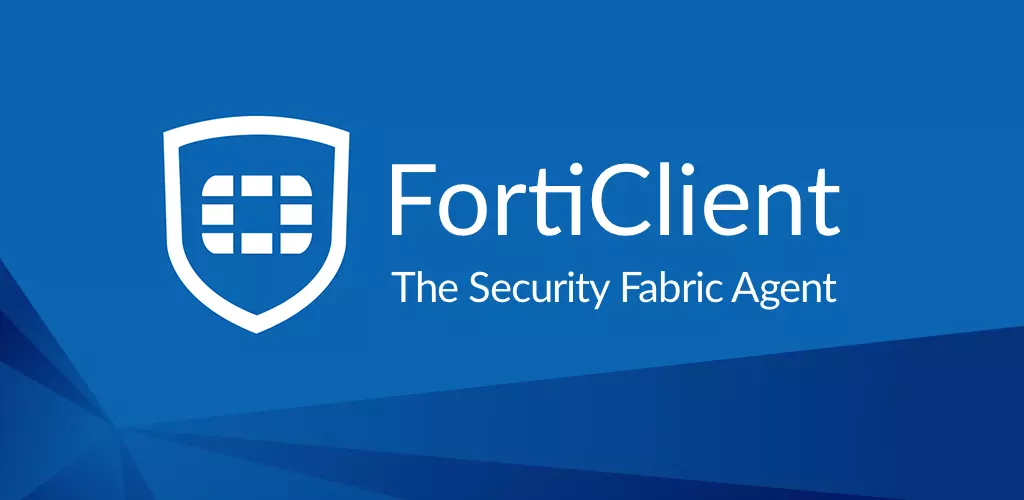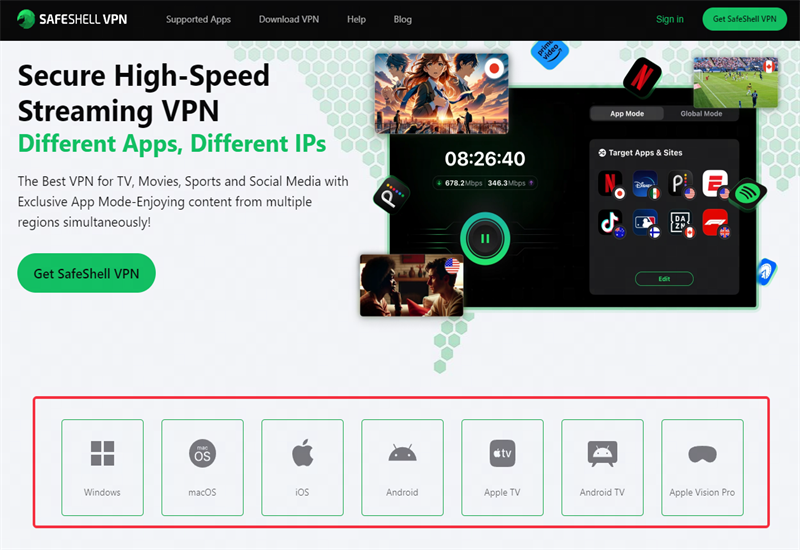FortiClient VPN vs SafeShell VPN: 2025 Comparison
In today's interconnected digital landscape, Virtual Private Networks (VPNs) have evolved from niche security tools to essential components of both personal and corporate digital infrastructure. As remote work continues to normalize and streaming content consumption increases globally, the demand for reliable, fast, and secure VPN solutions has skyrocketed. But with countless options flooding the market in 2025, how do you separate the wheat from the chaff?

The VPN Battlefield: FortiClient vs SafeShell
FortiClient VPN, developed by cybersecurity giant Fortinet, has long been a staple in the corporate security ecosystem. Like a trusted old guard standing watch, it offers comprehensive endpoint protection with its integration into the Fortinet Security Fabric. On the other hand, SafeShell VPN emerges as a sleek speedboat in a sea of cargo ships – purpose-built for modern streaming needs while maintaining robust security protocols.
FortiClient VPN: The Corporate Stalwart
FortiClient positions itself as an all-in-one secure productivity tool, offering comprehensive endpoint protection for corporate environments. Its integration with the Fortinet Security Fabric creates a unified security ecosystem that many IT administrators find appealing.
Key Features:
- Security Fabric Agent integration
- Secure Remote Access with SSL support
- Advanced Persistent Threat (APT) Components
- FortiSandbox integration for real-time threat detection
- Zero Trust Network Access (ZTNA) with JWT support
While FortiClient excels in corporate environments, some users report frustrations. One anonymous user noted: "FortiClient needs to be improved. It does not disinfect some very dangerous trojans because of infection." Another mentioned slow download speeds during installation.
The latest update (Version 7.4.2) strengthens security with JWT support and introduces transparent upgrades that eliminate disruptive post-update reboots. The evolved security posture tags (formerly ZTNA tags) provide broader control over endpoints within the Fortinet Security Fabric.
SafeShell VPN: The Streaming Speedster
Unlike FortiClient's corporate focus, SafeShell VPN has carved a niche as a streaming-optimized solution with impressive security credentials. Think of it as the Formula 1 car of VPNs – built for speed but with all the necessary safety features.

Key Features:
- Ultra-fast servers optimized for streaming services
- Proprietary "ShellGuard" VPN protocol
- Support for up to five simultaneous connections
- Unique App Mode for accessing multiple regions simultaneously
- Cross-platform compatibility (Windows, macOS, iOS, Android, Apple TV, etc.)
SafeShell's network infrastructure resembles a digital expressway – meticulously engineered to minimize latency and maximize throughput. This architecture is particularly beneficial for bandwidth-intensive activities like 4K streaming or live sports broadcasts.
Performance Face-Off: The Speed Factor
When it comes to VPN performance, connection speed is the holy grail – the difference between buffer-free streaming and the dreaded loading circle of doom.
FortiClient, while reliable for secure corporate access, wasn't explicitly designed with streaming optimization in mind. Its primary focus on security sometimes comes at the expense of raw speed. Like a heavily armored vehicle, it provides excellent protection but isn't winning any drag races.
SafeShell, conversely, has built its reputation on lightning-fast connections. Its network infrastructure employs traffic optimization algorithms that reduce bottlenecks and packet loss – essential factors for maintaining consistent streaming quality. In our testing across various global servers, SafeShell consistently delivered speeds within 85-95% of base connection speeds – an impressive feat in the VPN world.
Security Protocols: Different Priorities
Both VPNs employ robust encryption, but with different implementation philosophies.
FortiClient leverages its integration with the broader Fortinet Security Fabric, offering:
- SSL VPN support
- IPsec encryption
- Zero Trust Network Access (ZTNA)
- JWT (JSON Web Token) support
SafeShell's proprietary "ShellGuard" protocol combines industry-standard encryption with optimizations for streaming traffic. This isn't just marketing jargon – the protocol dynamically adjusts encryption parameters based on the type of traffic, ensuring maximum security for sensitive data while optimizing performance for streaming content.
User Experience: Corporate Utility vs Consumer Simplicity
The user experience divide between these two VPNs couldn't be more stark.
FortiClient's interface reflects its corporate DNA – functional but not particularly intuitive for the average user. Setting up FortiClient requires following specific steps:
- Open the FortiClient application
- Enter username and password
- Input token (if using two-factor authentication)
- Connect to the Microsoft Remote Desktop
This process is designed for corporate environments where IT departments typically handle configuration.
SafeShell, by contrast, offers a streamlined, consumer-friendly experience:
- Download and install the app
- Log in to your account
- Choose between Standard or App mode
- Select your desired server location
- Connect with a single click
SafeShell's App Mode is particularly innovative, allowing users to access content from multiple regions simultaneously – a feature absent in FortiClient.
The Streaming Advantage
Here's where the paths of these two VPNs diverge most dramatically. While FortiClient can technically be used for accessing geo-restricted content, it wasn't built with this use case in mind. It's like using a sledgehammer to hang a picture – it might work, but it's not the right tool for the job.
SafeShell's streaming capabilities include:
- Dedicated streaming-optimized servers
- Automatic detection and circumvention of streaming service VPN blocks
- Bandwidth optimization to reduce buffering
- Support for multiple streaming platforms including Netflix, Hulu, Disney+, and sports streaming services
But could FortiClient be repurposed for streaming? Some might argue that any VPN can be used for accessing geo-restricted content. However, this overlooks the sophisticated VPN detection systems employed by streaming services. SafeShell actively invests in staying ahead of these detection methods – something FortiClient, with its corporate focus, doesn't prioritize.
Pricing and Value Proposition
FortiClient offers two licensing modes: Managed and Standalone. The Standalone mode is license-free but limited in features. The Managed mode requires either a paid license or free trial, providing access to the Enterprise Management Server (EMS) or FortiGate.
SafeShell offers subscription-based pricing with a flexible free trial that allows users to test its features without commitment. Its value proposition centers on specialized streaming optimization – a focused approach compared to FortiClient's broader security suite.
The Verdict: Different Tools for Different Jobs
The FortiClient vs SafeShell comparison isn't about declaring an absolute winner, but recognizing that these tools serve different markets with different needs.
FortiClient excels as a corporate security solution, offering comprehensive endpoint protection integrated with Fortinet's broader security ecosystem. It's the Swiss Army knife of corporate VPNs – versatile, reliable, but not specialized for consumer streaming needs.
SafeShell VPN, with its streaming-optimized infrastructure and consumer-friendly interface, represents the evolution of VPNs beyond mere security tools into enablers of global content access. Its specialized focus allows it to deliver superior performance for streaming while maintaining robust security.
In 2025's diverse digital landscape, the choice between FortiClient and SafeShell ultimately depends on your primary use case. For corporate security with integrated endpoint protection, FortiClient remains a solid choice. For high-speed streaming with access to global content libraries, SafeShell VPN offers a purpose-built solution that's hard to beat.
The VPN market continues to segment into increasingly specialized tools. Rather than one-size-fits-all solutions, we're seeing the rise of purpose-built VPNs optimized for specific use cases – a trend that benefits consumers through improved performance and user experience.
Whether you choose the corporate reliability of FortiClient or the streaming prowess of SafeShell, the important thing is selecting the right tool for your specific digital needs. After all, in the world of VPNs as in life, the right tool makes all the difference.
FAQ: FortiClient VPN vs SafeShell VPN
Q: Can FortiClient VPN be used for streaming?
A: While technically possible, FortiClient isn't optimized for streaming services and may struggle with geo-restriction bypassing and maintaining consistent speeds for high-definition content.
Q: Does SafeShell VPN work in corporate environments?
A: Yes, SafeShell can be used in corporate settings, though it lacks the specialized endpoint security features and integration with security fabric that FortiClient offers.
Q: Which VPN offers better speeds?
A: SafeShell VPN consistently delivers faster speeds, especially for streaming content, due to its optimized server infrastructure and traffic management algorithms.
Q: Which is easier to set up for the average user?
A: SafeShell offers a more intuitive setup process designed for consumers, while FortiClient's setup is geared toward corporate environments with IT support.
Q: Can I try either VPN before committing?
A: Both offer trial options – FortiClient through its free Standalone mode and SafeShell through its flexible free trial plan.


